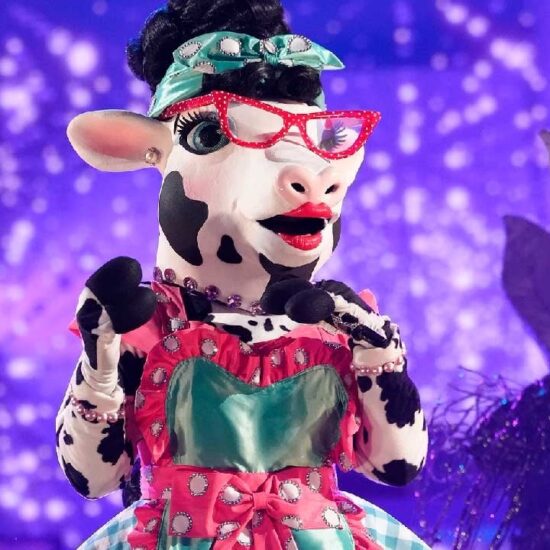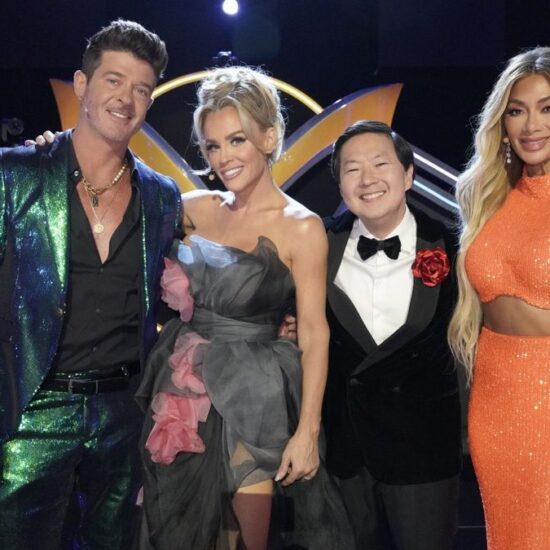
SPOILER ALERT: This post contains spoilers from “With Open Eyes,” the series finale of HBO’s “Succession,” now streaming on Max.
What a relief that the only votes being counted in the “Succession” finale were those of Waystar Royco board members.
“Succession’s” series finale returned the show’s focus to the Roy family and their moves and countermoves against one another. How refreshing, after a season that was, on the whole and especially in recent weeks, cludgily paced and oddly unfocused. The polish and elegance of the show’s final moments stands in crisp counterpoint to a stretch of episodes that didn’t have the juice: It was as though the confirmation, at last, that the family business really would be changing hands reminded the show what gave it its elemental power.
To wit: The final episode exists within the context, and the long hangover, of the recent, still-contested presidential election, one in which the Roy-anointed candidate has claimed victory under dubious circumstances. It’s a relief to have this issue permanently back-burnered, to have the fact of the Roy family’s complicity treated as a part of who they are rather than an aspect of their story to be unrewardingly probed further. That the Roys have political power put to malign ends was never in doubt — to put it in the plainest possible terms, we know who they’re based on. And we saw the recently late Logan Roy (Brian Cox) anoint fascist-curious Republican aspirant Jeryd Mencken (Justin Kirk) in Season 3, an event that brought Shiv (Sarah Snook) to the point of panic; that she basically stopped worrying about the election is a sign of her dilletantism, or the show’s ability to juggle a lot, but not (quite) the fate of democracy on Earth.
It was a dispatch from a show with more global concerns than “Succession,” or one whose characters didn’t already seem to exist in a cynical, post-Trump world, and thus wouldn’t have been quite so destabilized by what we might have felt they’d have seen coming. What a relief to have done with this — to see it sidelined as what it always should have been, another exhibit for the prosecution, demonstrating the Roys’ callousness, but one without much dramatic potential. This show works infinitely better as one with politics as one of many elements in its arsenal than as one attempting to dramatize and explicitly comment on politics, not least because a writing team led by Jesse Armstrong gets the little things about human interactions at high-stakes moments better than the little things about American election nights.
It was as though, for a while, the show didn’t know what made it work — and in the finale, it got its old high-stepping confidence back. The stakes and characters Armstrong and company had set up to this point allow them to wring unbearable tension out of, for instance, two siblings swimming out into the ocean to speak frankly to a third. They have successfully interested an audience that includes many people who don’t subscribe to the Wall Street Journal or Barron’s in the goings-on of corporate board meetings! And yet every episode of this final season seemed to quest to soar higher, to draw excessively grand concentric circles around the Roys’ legacy as we waited for certain fundamental questions to be answered. Another week, another plane: The plotting had a drafty quality to it (that it was never quite clear when in time we were is slightly more than this viewer is willing to just go with). And the show, never shy about a set piece but more reliant on them than ever, felt as if it were using a high volume of incident to skitter away from frankly addressing certain core dynamics.
There were great moments along the way! (And moments where a certain windiness took over, as with big speeches for Alan Ruck’s Connor Roy and James Cromwell’s Ewan Roy, both of whom seem to speak in a similar sort of poetry while slowly stating the obvious.) For its super-sized running time, though, the final episode felt comparatively fleet of foot; the show seemed so focused on moving relentlessly toward its conclusion, however bleak that needed to be, that it had precious little time to stop and admire the quality of its writing. “Succession” had a great deal of ground its creators felt it needed to cover in its final stretch, clearly; it also may have been keeping its powder dry for a finale centered around what the show did well — what, indeed, it delivered.
The mere fact of a board meeting felt practically surreal on a show with a final stretch that had traversed so widely; it felt, for its three central combatants, like a homecoming. For all that the plotting and writing of the fourth season to this point opened it to criticism, the show never lost sight of Shiv or of Kendall (Jeremy Strong) or of Roman (Kieran Culkin), and their actions — from Shiv’s hairpin reversal on her brothers to Kendall’s contemplating the sea that lies between him and the rest of his post-Waystar life in the show’s final moments — make a crystalline sort of sense. These are, finally, not characters who are endlessly adaptable, easily able to be plugged into just any dramatic scenario; when Kendall pleads in the finale that he doesn’t know what he was meant to do beyond work at Waystar, we believe him. Testing their limits by thrusting them into the middle of national politics was a good way of proving that they don’t, indeed, have the requisite intellects or cunning to compete at that level, but it felt good to move to familiar ground.
Critiques of the fourth season on the whole feel, already, of limited and ephemeral utility as the finale lands so satisfyingly. Chalk it up to a funny sort of praise. The show absolutely righted itself, or was denying us pleasure before granting it again. Say this, too: The high drama of the show’s funeral scenes or the blunt tragicomedy of the again-as-farce restaging of the 2016 election weren’t what this particular show does notably well. Compare those moments of narrative puffiness to the askew and offhanded dismantling of various characters’ dreams with the emergence of GoJo Waystar, the smirking, casual ease of interloper Lukas Matsson (Alexander Skarsgård) as he gloats over his new prize. That’s what “Succession” brought to the table that was unique — not the grandeur with which it could blow up the impact of business tycoons, but the ways in which it could reveal just how vulnerable, and how small, they really were.













